20 Best Things to Do in Costa Rica
From cloud forest hikes to chocolate farm tours, these are the best things to do in Costa Rica.
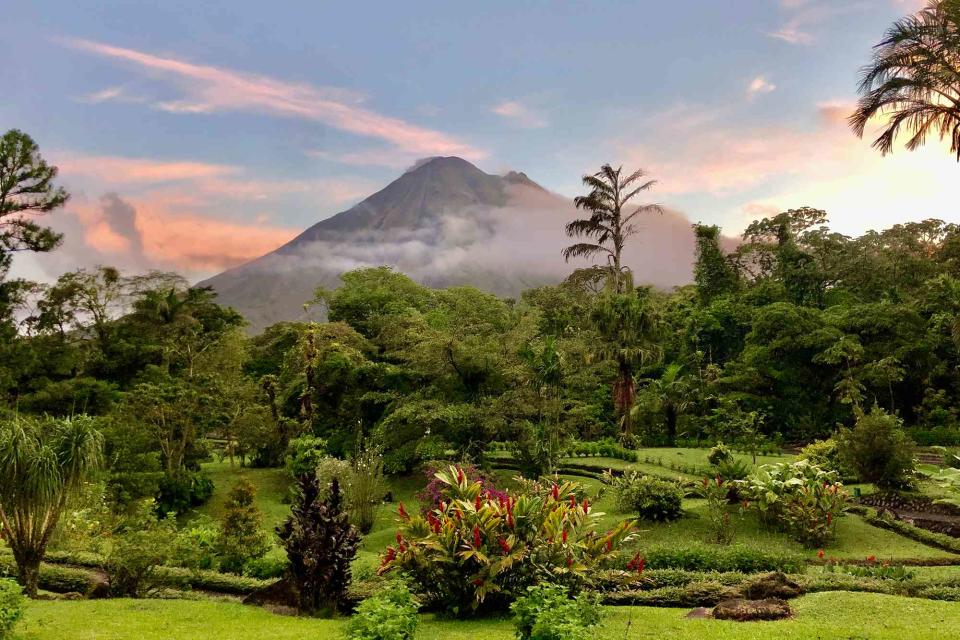
Janusz Kubow/Getty Images
From rainforests and cloud forests to volcanoes and hot springs, Costa Rica is a hub of ecotourism with great weather and an endless parade of pristine natural areas to discover. Framed by coastlines along both the Caribbean Sea and the Pacific Ocean, the country has countless places to surf (hello, Santa Teresa and Nosara) and chill on beautiful beaches. Add cultural institutions like the Pre-Columbian Gold Museum in the capital, San Jose, plus some wonderful eco-lodges and resorts, and it’s easy to see why tourists flock to Costa Rica.
While it’s hard to cull down the myriad activities and attractions in this peaceful Central American country where pura vida is the way of life, with the help of a dream team of local experts (Lucas Medeiros, chief concierge at Four Seasons Resort Costa Rica at Peninsula Papagayo, Natasha Brown, the founder of Salty Afro Surf, and Jemma Wright, director of experience at Hacienda AltaGracia, Auberge Resorts Collection), we’ve rounded up 20 of the best things to do in Costa Rica.
Related: T+L’s Guide to Costa Rica
Monteverde Cloud Forest Biological Preserve
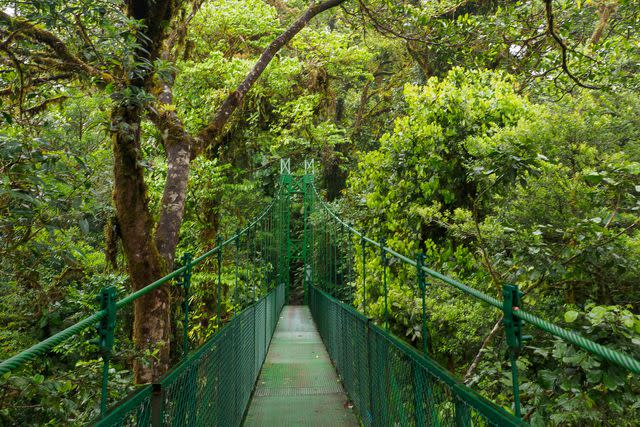
Brandon Rosenblum/Getty Images
Nestled along the Cordillera de Tilarán mountain range, the Monteverde Cloud Forest Biological Preserve covers more than 35,000 acres of lush trees. Besides incredible endemic flora, it’s also home to animals such as howler monkeys and sloths. One of the best ways to soak in all the beauty? A high-flying zip-line tour.
Rincón de la Vieja National Park
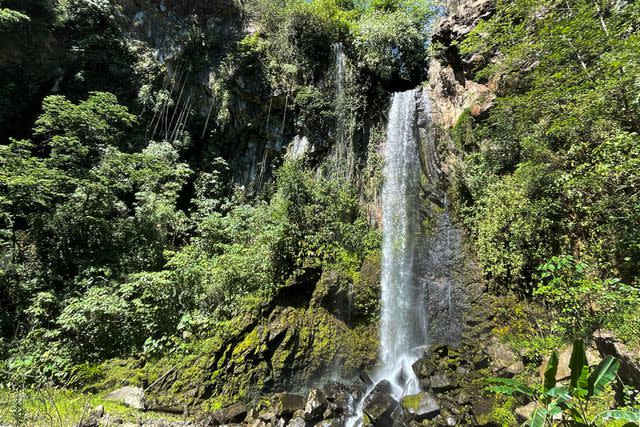
Alessandra Amodio/Travel + Leisure
Rincón de la Vieja National Park spans 34,000 acres of rugged terrain. It’s also a hotbed for adrenaline-pumping activities. “Mountain bikers of all levels can enjoy a thrilling ride around the largest volcano in Guanacaste,” says Lucas Medeiros.
Ecotermales Fortuna
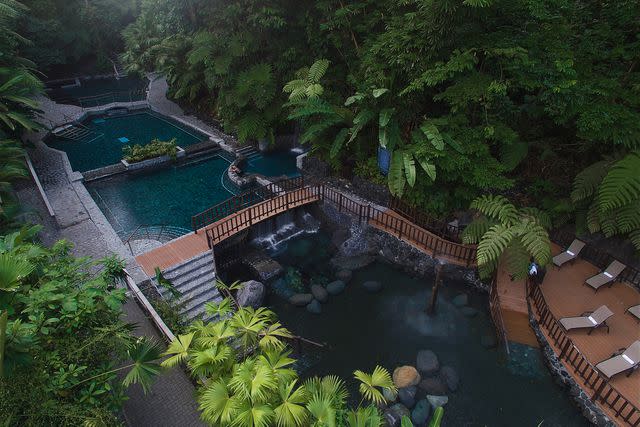
Courtesy of Ecotermales Fortuna
The ideal place to soothe overworked muscles and relax after countless rugged adventures? Ecotermales Fortuna. The warm, magnesium-rich waters heated by the nearby Arenal Volcano are said to help combat inflammation and relieve pain, and the cool pools provide the perfect opportunity for hot and cold therapy.
Corcovado National Park
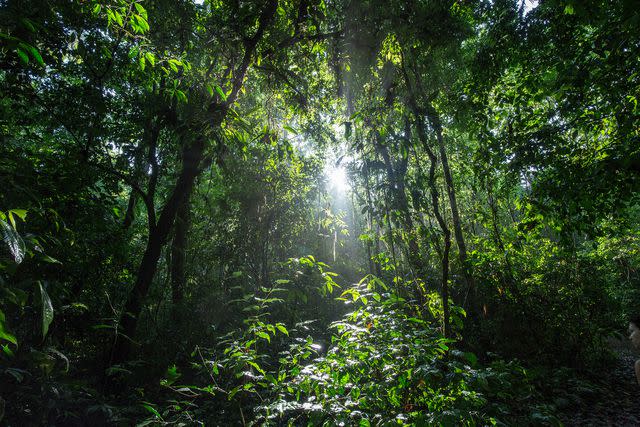
MB Photography/Getty Images
“Corcovado National Park, located on the Osa Peninsula, protects one of the most biologically diverse and complex ecosystems in the world,” says Jemma Wright. “The natural richness of this area — unspoiled beaches, rainforest trails, mangrove swamps, waterfalls, and wildlife — helps visitors appreciate our beautiful country.”
Arenal Volcano National Park
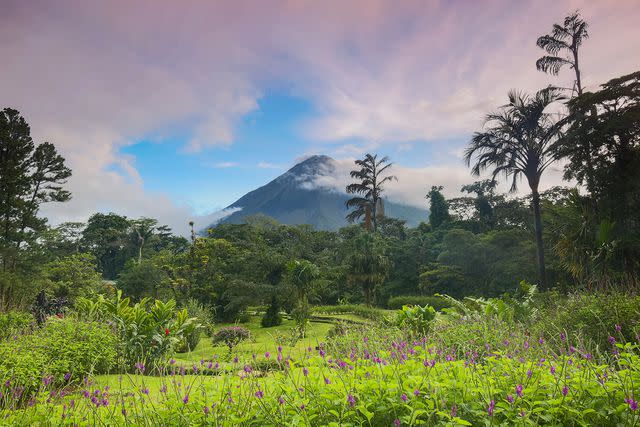
MB Photography/Getty Images
One of Costa Rica’s most famous attractions, the 30,000-acre Arenal Volcano National Park draws upwards of 100,000 visitors each year. Most travelers make the journey to witness its crown jewel stratovolcano, which rises 5,357 feet toward the clouds. Hiking, horseback riding, zip lining, and river rafting are also popular activities.
Santa Teresa
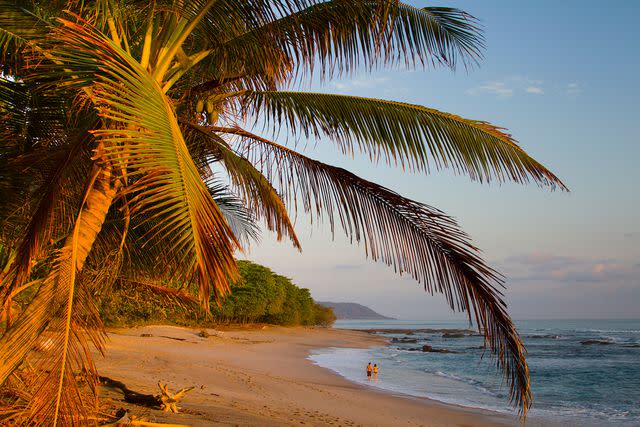
Aldo Pavan/Getty Images
Santa Teresa is a must-visit spot for pura vida chasers and surfers. New to paddling out? First-timers can take group or private lessons. Back on land, the palm-fringed beach draws crowds for sunbathing and sunsets.
Tenorio Volcano National Park
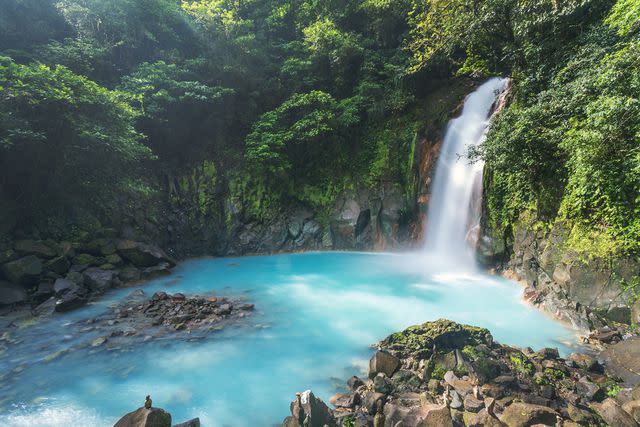
Matteo Colombo/Getty Images
Situated in the rugged northern part of Costa Rica and part of the broader Arenal Tempisque Conservation Area, Tenorio Volcano National Park thrills travelers with its namesake volcano along with the spectacular Rio Celeste Waterfall (and the 3.5-mile trail that leads to it), wildlife peeping, and canopy bridges.
Playa Chiquita
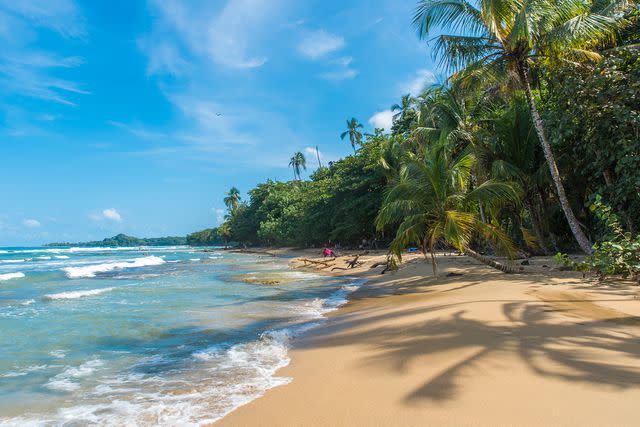
Simon Dannhauer/Getty Images
With over four miles of pristine waters, Playa Chiquita is the place for travelers looking for long swaths of untouched, uncrowded beaches and snorkeling the beautiful reefs, says Natasha Brown.
Manuel Antonio National Park
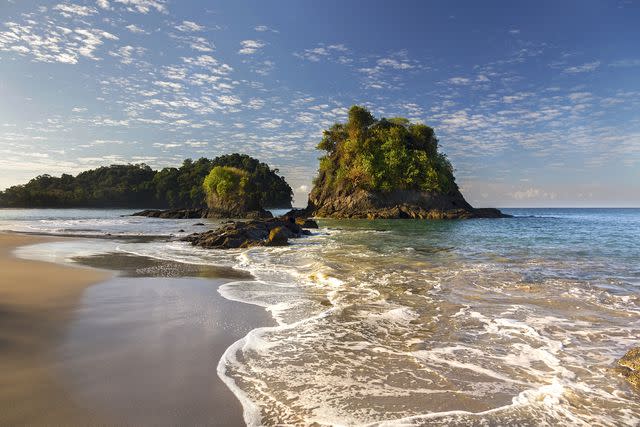
AutumnSkyPhotography/Getty Images
Manuel Antonio National Park packs a ton of nature into a relatively small area. It’s just seven square miles, but within its boundaries are rainforests, tropical plants, untouched white-sand beaches, coral reefs, coastal hiking trails, and diverse wildlife — from three-toed sloths and white-faced capuchin monkeys to orange crabs and black spiny-tailed iguanas.
Coffee Farm Tour

Alessandra Amodio/Travel + Leisure
Costa Rica produces some of the best coffee in the world, and it’s a huge economic driver for the country. While it’s certainly not difficult to procure a great cup of joe, serious java enthusiasts keen to learn more about the process should consider booking a tour at one of the many coffee farms outside of San Jose.
Related: The Best Times to Visit Costa Rica
Tabacon Hot Springs
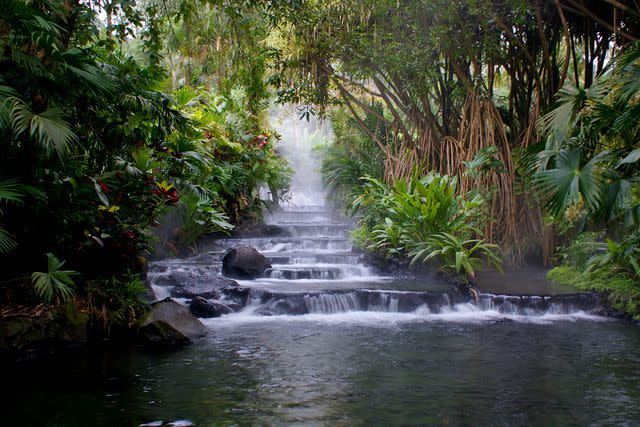
Bkamprath/Getty Images
While Costa Rica has many wonderful places to reap the benefits of volcano-heated mineral waters, few are as iconic as Tabacon Hot Springs. Tucked inside a lush, private rainforest reserve, this natural oasis wins points for its thermal pools and cascading waterfalls with healing, stress-melting benefits.
Bijagua Ranas
“I love going to Bijagua Ranas to enjoy the rainforest and see the sloths!” says Medeiros. Snakes, frogs, and toucans also call the wildlife sanctuary home. There are hiking trails, bridges, and viewing platforms that help you get a better look at all the wild inhabitants.
Playa Cocles
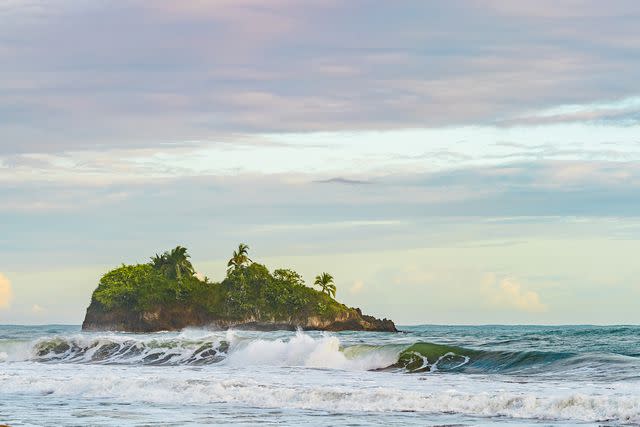
Vadim Anvaer/Getty Images
Just south of Puerto Viejo on the Caribbean coast of Costa Rica, Playa Cocles is a popular surf spot and afternoon hangout. “Both locals and travelers come here at the end of the day to watch fire shows, enjoy a drink with friends, or sneak a few waves while watching the beautiful sunset,” says Brown.
Pre-Columbian Gold Museum

Courtesy of Pre-Columbian Gold Museum
Head to the capital, San José, to learn about Costa Rica’s history and culture at the Pre-Columbian Gold Museum. Housed in an underground building beneath the Plaza de la Cultura, it dazzles visitors with a huge collection of gilded artifacts.
Tortuguero National Park
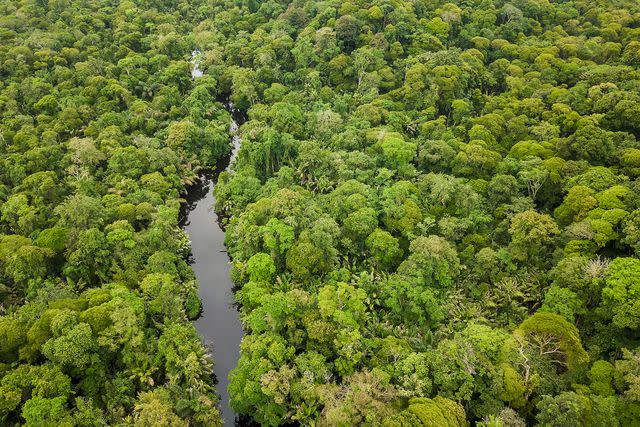
Arctic-Images/Getty Images
Hidden away on Costa Rica’s northern Caribbean coast and only accessible by boat or plane, Tortuguero National Park is one of the most distinct, isolated, and biodiverse places in the country, according to Wright. Nature lovers venture to this remote wilderness area to peep sea turtles, manatees, speckled caimans, and birds while navigating the canals on a canoe.
Nosara
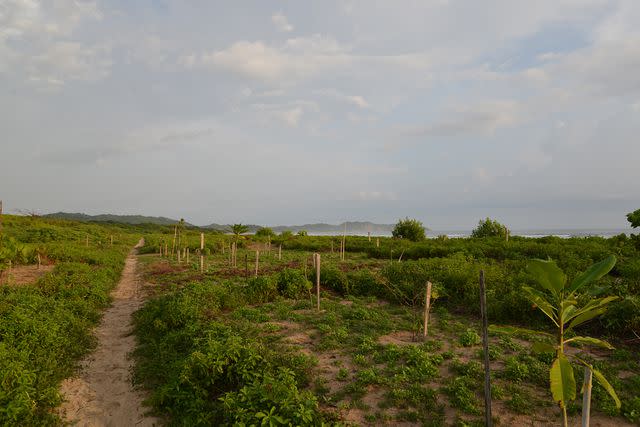
Courtesy of Visit Costa Rica
One of the top spots to learn, practice, or master surfing in Costa Rica, Nosara is awash with strong breach breaks and knowledgeable instructors. It’s also a wellness destination with many yoga studios, retreats, and wellbeing centers.
Tapir Valley Nature Reserve
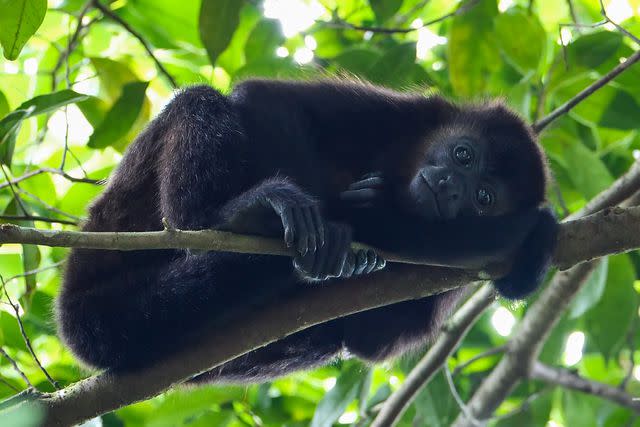
Mike Melton
Tapir Valley Nature Reserve in northern Costa Rica operates a spate of eco-tours through the spectacular 220-acre private preserve where animals ranging from ghost glass frogs to hummingbirds live. Visitors can follow tapir tracks with the help of a local Bijaguan guide, rise early for a birding adventure, or do a nighttime jungle tour to glimpse nocturnal critters.
Térraba-Sierpe Wetland
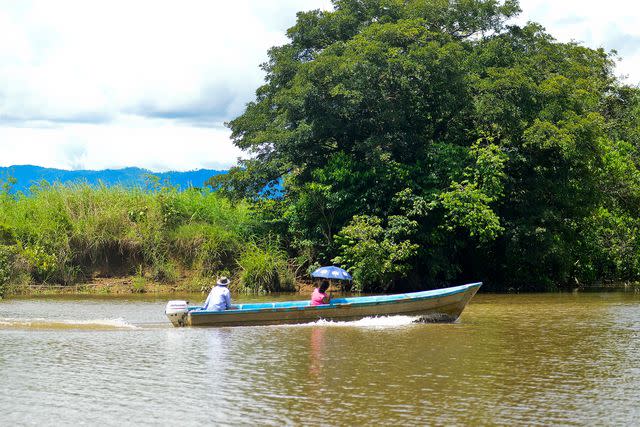
Jesus Fung Yan/Courtesy of Visit Costa Rica
“Exploring the mangroves, which hold so much biodiversity, supplies a deeper understanding of where the land, river, and sea unite," explains Medeiros. You’ll find the largest mangrove swamps in Costa Rica at the Térraba-Sierpe Wetland, just north of the Osa Peninsula.
Caño Negro Wildlife Refuge
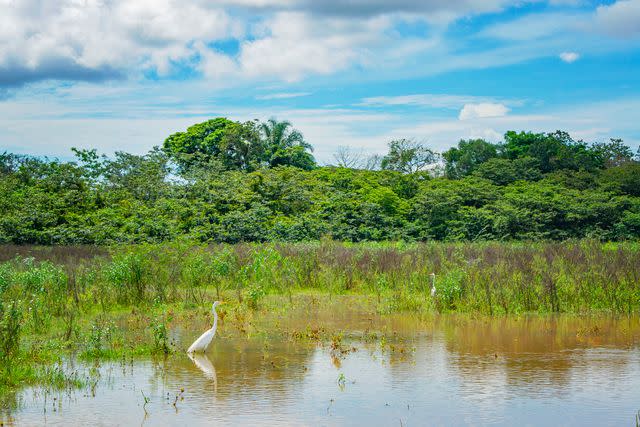
Kryssia Campos/Getty Images
Part of the Arenal Huetar Norte Conservation Area in the remote northern part of the country near the Nicaraguan border, Caño Negro Wildlife Refuge is a paradise for birdwatchers with good odds of spotting roseate spoonbills, jabirus, and even the reclusive agami heron in the “Everglades of Costa Rica.”
Chocolate Farm Tour
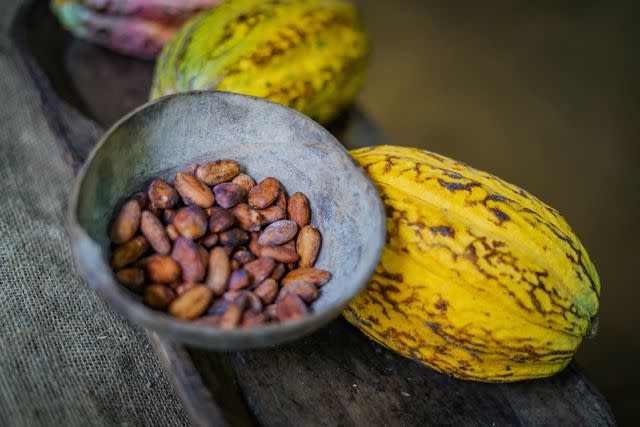
Jonathan Ledezma/Courtesy of Visit Costa Rica and Rainforest Chocolate Tour
When most people think of Costa Rican food, plates of pork, fish, rice, beans, and vegetables come to mind. But chocolate is a major staple (and export) as well. If you’re interested in learning more about how cacao becomes fine artisan chocolate — and sampling the “food of the gods” — book a beans-to-bar tour at one of the many chocolate farms.
For more Travel & Leisure news, make sure to sign up for our newsletter!
Read the original article on Travel & Leisure.

